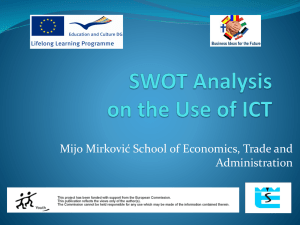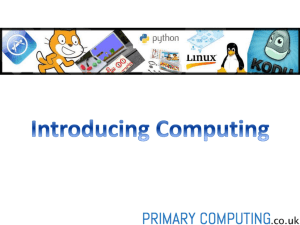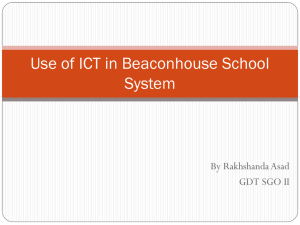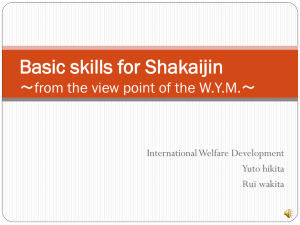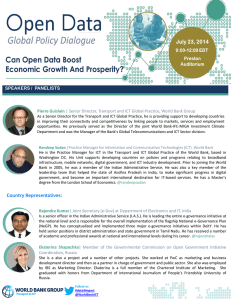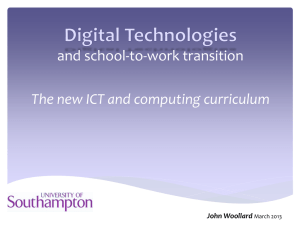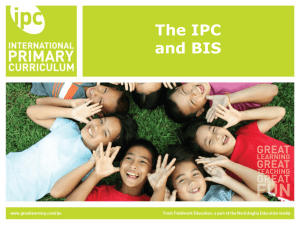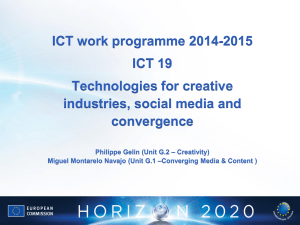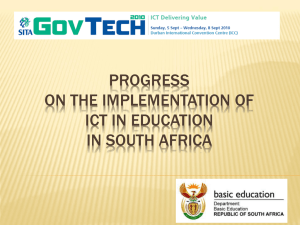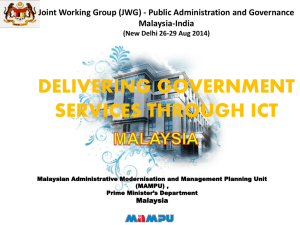The Role of ICT in Daily Life Peranan TIK
advertisement
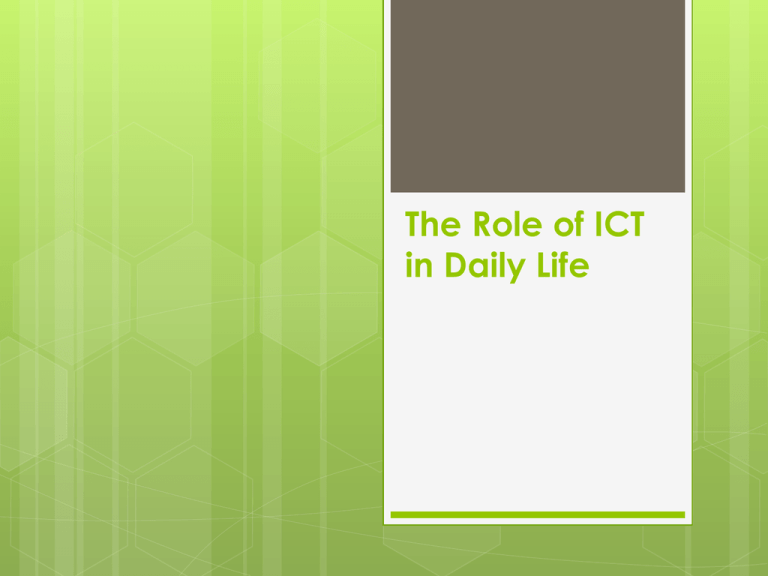
The Role of ICT in Daily Life 1. ICT in Banking Industry • • • • to store customers’ data and money, then calculate the interest, tax, and other administrative items money withdrawal service through ATM machine (Automatic Teller Machine) is developed Internet banking transactions that can be done through Internet Banking are money transfer, balance check, overbooking, bill payment, and account information Mobile banking banking transaction through cellular phone 2. ICT Education ICT can be used as a learning and administration medium • ICT use for long distant learning is called elearning (electronic learning) E-learning is commonly used by Open University (Universitas Terbuka), while for class-based learning, e-learning is used for enrichment outside the class • In administrative field, besides for school administration, ICT is used to manage new student admission (Penerimaan Siswa Baru) named online PSB 3. ICT in Health Service ICT is used in patient medical record • ICT is also used in medical equipment, such as Ultrasonography (USG) USG is used to provide an image of internal organs in human body, such as seeing fetus in a pregnant woman’s womb Another equipment that is often used is electrocardiograph to display Electrocardiogram (EKG) which records heart electric activity. There are still many other ICT-based equipments • 4. ICT in bussiness In business ICT is used for electronic commerce or commonly known as ECommerce ICT is used in an integrated information system in supermarkets 5. ICT in Government (e-government) E-government is ICT use that can improve relation between the government and other parties. The use of the information technology then results in a new form of relationship like: G2C (Governmet to Citizen), G2B (Government to Business), and G2G (Government to Government) Some benefits of e-government are: • The availability of information to public 24 hours a day, 7 days a week • The improvement of the relationship among the government, bussinessmen, and public More efficient and transparent government services Some e-goverment samples that are related to public are: • Citizenship data service, including residence card making • Online tax payment,which can be done via the internet or ATM machine • Complaint and suggestion to government via SMS, and so on Benefits of ICT 1. Spaceless and timeless The information provided in the Internet can be accessed by anyone anywhere if having a computer and telecommunication connection. By this way, space and time are no longer problems in the information era 2. Speed Service Some of the examples are: • Easier and faster residence card (KTP) making • Faster driving license (SIM) making • Easier and faster students’ grading by a teacher • Fast service by a cashier, because every good bought does not require any writing, but it is read using barcode reader. 3. Less Use of Paper 4. Less Fuel and Less Polution Various Negative Impacts of ICT Use • • • In relation to information dissemination, there are several negative impacts: Information provided in the Internet is not always true, so it is possible that there is any misleading information. It can lead to enmity, hatred, libel, and other negative impacts. There is no age limit to access information in the internet, so anyone can access any information. In this case, violence, sexual harassment and so on might happen. In business, today shopping using credit card is the most used method in the Internet It also gives chances for crime. Since it is open by nature, criminals can detect any transaction (that uses credit card) on-line and record the card code that is used. Then they use the data obtained for their own purpose. It is called Carding. • Data security becomes an important thing in the activity related to network and Internet. There are two kinds of activities that deviate a computer network: hacking and cracking. Hacking is a way to enter a network in order to explore or find the weakness of the network system. Cracking is a way to enter a network illegally in order to steal, change, or destroy files or data stored in the network computers. One doing hacking is called a hacker, while one doing cracking is called a cracker. Regulation To anticipate the negative impacts, a regulation that limits the movement of cyber criminals as well as to give secure feeling to other internet users is made. The regulation form is Act of Republic Indonesia Number 11 Year 2008 on Electronic Information and Transaction that is named UU ITE. To understand the Act on ITE, table 2.2 presents two examples of forbidden actions, stated in section 27 verse (1) and (2) with criminal provision stated in section 45 verse (1). Act on ITE is fully presented in attachment 1.


